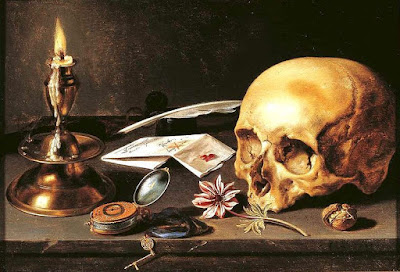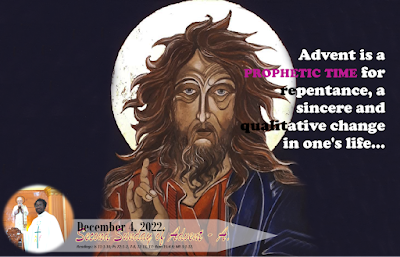Riches and Poverty: the foolishness of our time.
August 4 2019: Eighteenth Sunday in Ordinary Time
A French proverb says, “At his death, the richest man
carries nothing away with him but a shroud.”
There is a sad constant in our societies and in the world,
the thirst for possession and the consumerism. This has been since the creation
and still more actual today. We are a society of consummation. In this sense,
we all move in accumulation. We want our jam-packed of everything. New clothes,
news shoes, new cellphones, new cars, new houses… What was new yesterday loses
it brightness and ends becoming old; therefore, we thirst for another. For many
people, security means possession. To have nothing, starting with money is to
live the most insecure life, opened to all uncertainties. This thirst for
accumulation leads many people to be self-centered and to the saddest form of
egoism: selfishness and indifference.
Today’s liturgy comes to ring the alarm. We are urged not to
seek only for material goods, but to thirst for the most important, the
spiritual goods; that is, to hoard up treasures in heaven.
In the mind of many people, to be rich means to possess the
whole world. Happy life seems to be made of abundance of possessions, servants
at our service, thousand and thousands of millions or billions in our accounts,
many girlfriends or boyfriends, and more… To that thinking, the Ecclesiast
says, “Vanity of vanities! All is vanity.” All that we rejoice on today, all
that seems setting us at peace and bringing us security will not go with us in
the grave. The Ecclesiast adds that we will “leave all to be enjoyed by a man
who did not toil for it.” There is, therefore, a need to set our hearts not on
passing and vain possessions, rather, on the most important.
Jesus, in the Gospel, will emphasize that, those who hoard
wealth and material possessions are “fool”. It is to get everything wrong, to
think that material goods and hereditary can contribute to one’s salvation and
eternal happiness. Riches might certainly assure you human respect and
security, but not the spiritual.
Reality shows that the most insecure people are those who
seem to have everything. Have you ever seen security guards at the gate of the
poor man? He even has no gate at his house and no perimeter walls. He knows not
of what use is a CCTV; he needs no bunker, neither safe in his room. The little
that he has is always at hand, no bank accounts. Those who possess are the most
insecure people. Their houses are like man-made prisons: electrical fences, high
walls, CCTV, security guards, alarm with straight connection to the police
station, watch dogs… A real hell. They fear anyone and anything. No one can
access their house without appointment or invitation… Vanity of vanities! Says
the Ecclesiast.
The Gospel of this 18th Sunday and its
background: we read that a certain young man asked the Lord, “Teacher, bid my
brother divide the inheritance with me.” In families, even in the time of
Jesus, matter of successions and share of inheritance have always been a source
of conflicts, often leading to fratricides. It appears clear that this man was
having a great dissension with his brother who refuses to give him his part of
their father’s possession. Material goods are the sinews of all problem!
This gives, however, the opportunity to Jesus to open a
catechism on material possession and riches. He first warns his disciples,
“Beware of all covetousness; for a man’s life does not consist in the abundance
of his possessions.” Then the Lord gives the parable of the land owner, the
parable of the rich man. Many people, oftentimes, fall in the illusion that
possession is a warrant and assurance of peace, happiness, security and future.
This extract of St. Luke, added with the first reading teach us clearly that
material goods can only assure a fleeting material security, but not be a guarantee
of future. It is actually a foolishness to think that our money, golds, silvers
or big houses will increase our happiness and guarantee our tomorrow. The
answer of God to the rich man in the parable is also revolved to us, “You fool,
this night your life will be demanded of you; and the things you have prepared,
to whom will they belong?”
Vanity of vanities! To say with the Ecclesiast, all is
vanity. Thus, a famous Chinese says: “With money you can buy a house, but not a
home. With money you can buy a clock, but not time. With money you can buy a
bed, but not sleep. With money you can buy a book, but not knowledge. With
money you can buy a doctor, but not good health. With money you can buy a
position, but not respect. With money you can buy blood, but not life. With
money you can buy sex, but not love...”
As the Lord’s disciples, we are highly invited to develop a
new kind of relationship vis-à-vis of riches. It is not that it is evil to be
rich or to possess material goods. But the evil comes from thinking that our
possession can assure us a peaceful future and eternity. What can assure us
eternal life are not things from below, but the spiritual realities, things
from above where Christ lives. Thus, the exhortation of Paul to the Colossians,
“Brethren, if you have been raised with Christ, seek the things that are
above.” We need to give more importance and set our minds on heavenly realities
and spiritual values.
The earth and all that it contains will one day vanish.
Nothing from this world is eternal. Those who have not understood that truth, are
always eager to possess, to accumulate, to gain everything new… Of which
benefit will be all our thirst if we end losing our lives and losing heaven?
Many people live today in the idolatry of material
possession and riches. By so doing, they open the door to many immoralities.
Paul’s words to the Colossians, “Put to death, then, the parts of you that are
earthly: immorality, impurity, passion, evil desire, and the greed that is
idolatry. Stop lying to one another…”
Material goods cannot satisfy our soul. Besides, let us
never presume that we will have many years to live. Our lives are in the hands
of God. At any moment he can take them away from us. We therefore would be wise
to store up treasures for ourselves in heaven by using our earthly riches to
serve and help the needy. Because, as says St. Luigi Orione, “Only charity will
save the world.” He who loves is eager to give what he has; while he who does
not love wants to keep all for himself.




Comments
Post a Comment